

![]()
On the first night of Passover, generations of Jewish families gather together in their homes or with other community members to perform the Passover seder. This ritual consists of reading the Haggadah, which is essentially a retelling of the story of the Jewish exodus from Egypt, and the consumption of symbolic foods. The word 'Haggadah' is derived from the Hebrew root 'to tell'. The Haggadah also contains benedictions, prayers, commentary, psalms, and songs relating to the exodus.
Some Haggadot (pl.), like the one donated by the Price family (below), are annotated with personal family traditions and show which parts of the Haggadah a family might choose to emphasize or omit. Haggadot have been produced around the world – with accompanying translations in a multitude of languages. They range from sumptuously illustrated Haggadot in manuscript to Haggadot produced by a specific community or Jewish group or to reach a particular audience, such as children.
The Price Library of Judaica holds hundreds of Haggadot for Passover. In addition to rare and special editions like the ones exhibited here, the Library holds a wide range of specimens from around the world and from many time periods.
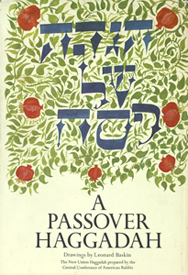
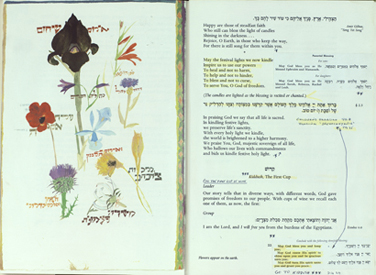
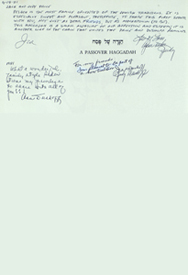
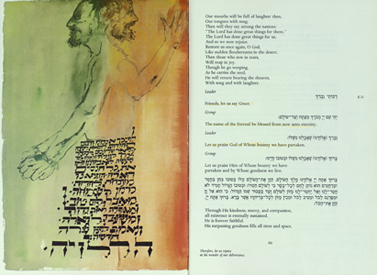
An edition of 500 copies, this copy was donated to the Price Library of Judaica by Jack and Miriam Price. The Baskin Haggadah has been used in Price family Passover celebrations and contains personal notes relating to their own family practices.
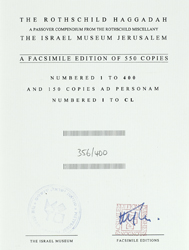
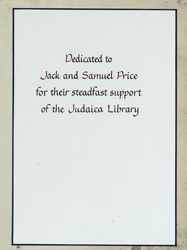
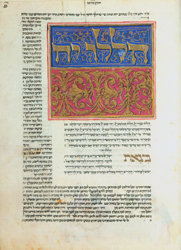
This limited edition facsimile of the Haggadah section of the Rothschild Miscellany was created by Michael and Linda Falter of Facsimile Editions. The Price Library's copy (1 of 500) was dedicated to Jack and Samuel Price on March 6, 2011 in appreciation of their steadfast support.